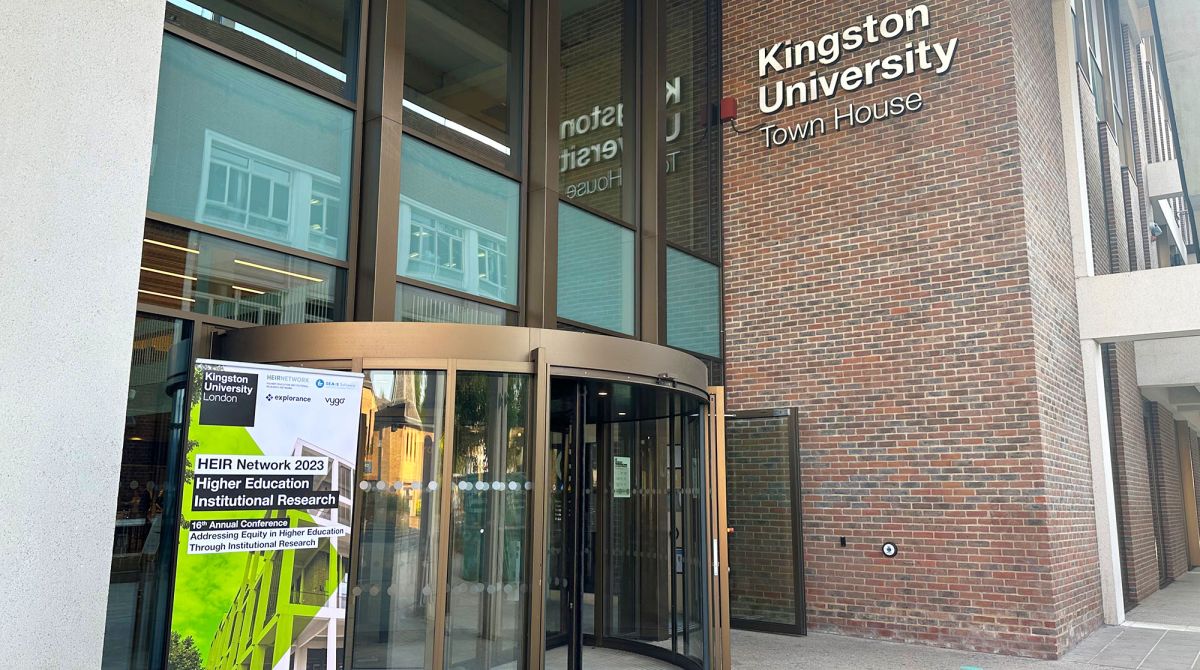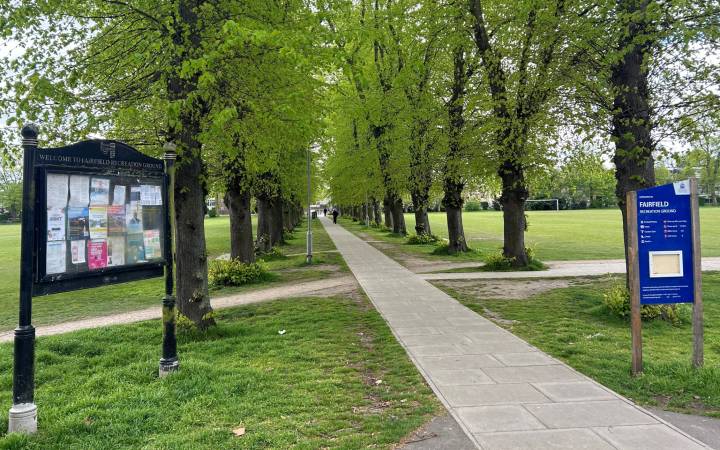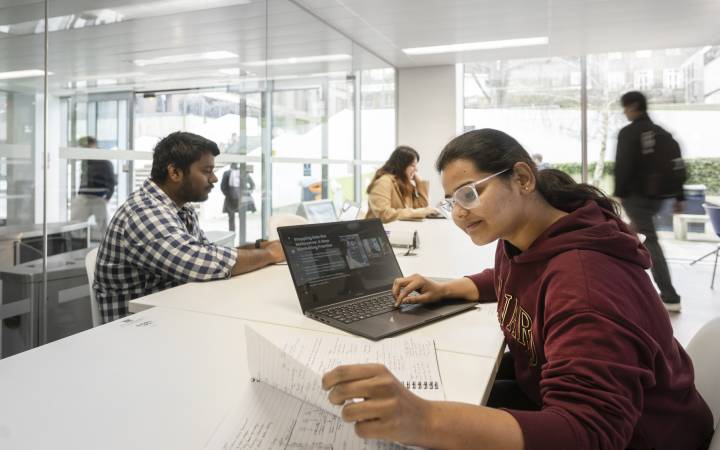Importance of using data to improve student outcomes highlighted during national Higher Education Institutional Research conference at Kingston University
Posted Wednesday 13 September 2023

Kingston University has played host to academics and professional services staff from institutions across the UK and Ireland for a major international conference exploring how research and data can best be used to ensure students from all backgrounds are provided with the tools and support to succeed.
The 16th annual Higher Education Institutional Research (HEIR) Network conference, held at the University's Penrhyn Road campus, saw experts from across the sector come together to share insights and analysis around the theme, Addressing Equity in Higher Education through Institutional Research.
The two-day conference was opened by Pro Vice-Chancellor for Education Professor John Craig at the University’s flagship Town House building, who explained the importance of analysing data to ensure equal opportunities and outcomes, drawing on how this has been applied to support Kingston’s diverse student body.
“We value, appreciate and celebrate the diverse experiences and knowledge that our students bring to their studies,” Professor Craig said. “Analysing data on their different experiences and backgrounds to consider how we can enhance what we offer them as an institution is absolutely key to ensuring we continue to provide all our students with what they need to succeed in their degrees and careers.”
 Pro Vice-Chancellor for Education Professor John Craig opening the HEIR Network conference at Kingston University's flagship Town House building.Across the two day conference, academics from across the sector delivered presentations, workshops and keynote speeches which highlighted the many ways in which institutional research, evaluation and data analysis increasingly play a pivotal role in supporting, evidencing, and strengthening equality for all in the Higher Education environment.
Pro Vice-Chancellor for Education Professor John Craig opening the HEIR Network conference at Kingston University's flagship Town House building.Across the two day conference, academics from across the sector delivered presentations, workshops and keynote speeches which highlighted the many ways in which institutional research, evaluation and data analysis increasingly play a pivotal role in supporting, evidencing, and strengthening equality for all in the Higher Education environment.
Kingston University’s Director of Teaching and Learning for the School of Life Sciences, Pharmacy and Chemistry Dr Nigel Page, who sits on the HEIR Network Planning Group and helped organised the conference, spoke of the importance of hosting an event which involved both academics working in teaching and learning and professional services staff working in data, planning and strategy. “Collecting and sharing data is integral to helping ensure we improve outcomes for all students,” Dr Page said. “Bringing together academics and data experts in one room to discuss and share their insights, challenges and successes around equity from their own institutions allows us to better understand how we can influence and embed best practice across the sector.”
Universities focused on a wide range of topics under the theme of equity throughout the conference, from embedding equality, diversity and inclusion into the curriculum to addressing the attainment gap between White and ethnic minority students, particularly at postgraduate level.
A key discussion point was Kingston University’s new Future Skills programme. The innovative model of education, being introduced to all first-year undergraduate students joining this September, focuses on equipping them with a broad range of skills sought after by employers. Delegates heard how the University has been analysing data around its diverse student body to help inform curriculum development and teaching of the Future Skills programme, which will help support the ambitions of all students and support them to develop the confidence to articulate the skills they have acquired in different professional environments.
The conference also shone a light on Kingston University’s award-winning Inclusive Curriculum Framework, which encourages the development of courses where all students see themselves reflected in the curriculum. A workshop detailed how this has been achieved at Kingston, by looking at the data and experiences of its student cohorts throughout all aspects of the academic cycle.
Another presentation explored a partnership study between Kingston University, King’s College London and St George’s University looking at how certain ethnic minority groups had seen a decline in attendance at in-person lectures and classes since the Covid-19 pandemic. It also highlighted factors that may be influencing this, from longer travel time to increasing travel costs, to establish how best to support students.
 The HEIR Network Planning Group convening at Kingston University.Co-Chair of the HEIR Network Planning Group Matt Hiely-Rayner, who is also Director of Strategic Planning & Change at Buckingham New University, said the annual conference enables the Higher Education community to come together to exchange knowledge and ideas, while building and developing new connections. “Each year this event provides us with a fantastic opportunity to work together to solve a common problem or issue facing the sector,” he said. “As someone who works in professional services, this is the one conference of the year where I get to hear fresh perspectives from academics covering a diverse range of disciplines, and work with them to achieve the same goal.”
The HEIR Network Planning Group convening at Kingston University.Co-Chair of the HEIR Network Planning Group Matt Hiely-Rayner, who is also Director of Strategic Planning & Change at Buckingham New University, said the annual conference enables the Higher Education community to come together to exchange knowledge and ideas, while building and developing new connections. “Each year this event provides us with a fantastic opportunity to work together to solve a common problem or issue facing the sector,” he said. “As someone who works in professional services, this is the one conference of the year where I get to hear fresh perspectives from academics covering a diverse range of disciplines, and work with them to achieve the same goal.”
Co-Chair and Head of the Evaluation and Policy Department at the University of Brighton Rachel Bowden said the conference had highlighted the importance of access to institutional data. “This year’s conference has brought to life the many ways in which institutions are using their data to help address contemporary issues of equity, covering a range of areas from student attendance and retention to institutional measures to close the attainment gap. It has provided a fantastic platform for sharing ideas, experiences, practices and solutions,” she said.
- Find out more about Kingston University’s sector-leading Future Skills programme
- Find out more about the UK and Ireland HEIR Network 2023 Annual Conference.
Contact us
General enquiries:
Journalists only:
- Communications team
Tel: +44 (0)20 8417 3034
Email us



